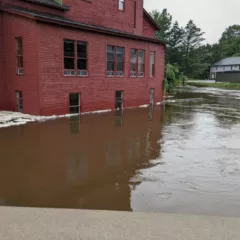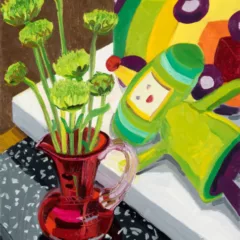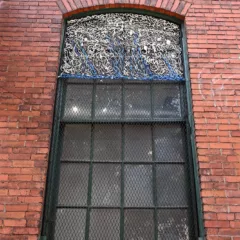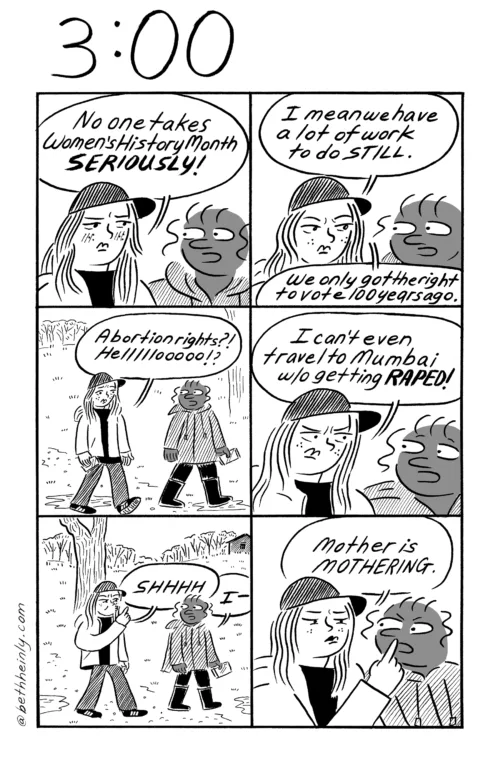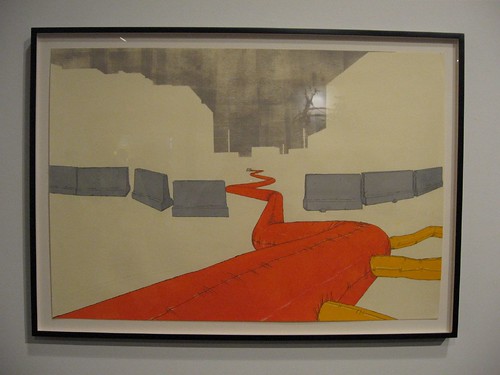
Amze Emmons, Breathing Apparatus, at the Painted Bride Cafe Gallery
How bad is the whining greed and entitlement that marks the American Way these days? It’s really bad. As a nation we can’t even accept that bad stuff happens–by accident, by fate, by the alignment of the stars. We’re bogged down in law suits based on some mistaken notion that we can control everything, and that anything bad that happens can be blamed on some human action, some human fault.
Now that’s just plain irrational. I’m not talking about some higher being, being to blame. I’m just talking about being in a universe in which we cannot control all that happens.
I’m also talking about living with limits and learning to share.

Surviving in a world with less is one of Amze Emmons’ messages
The other day in the newspaper, I read that a recent study showed that people who are charitable are happier than people who are not. For selfish reasons alone, it is better not to be selfish!
The young people in the art world seem to have figured out before our president (am I allowed to blame him for everything?) that we live in a world where it is better to not expect to have EVERYTHING NOW. In this year’s Whitney Biennial catalog, the curatorial essay by Henriette Huldisch writes about “lessness.” The show reflects her point and the point certainly reflects what we’re seeing in art these days, but then unfortunately the show itself turns out to be less.
In respect of dealing with the subject of lessness, Amze Emmons‘ exhibit, World Headquarters, curated by Inliquid at the Painted Bride Cafe, is on the money–or I should say on the other side of money, philosophically speaking. There’s the ironic title, with images of patchwork living quarters (see post). There’s the inflated, meandering pipeline–a red vein lifeline that cuts into the landscape and looks like it can breathe as well as transport the air we need–or is it the oil that’s simultaneously a death-line and a lifeline. There’s the entropy of weeds in the cityscape, and bags of trash.
There’s also a sense that life is provisional, that we are here temporarily, and Emmons leaves us room to go big time with this thought–that as a human race we may not make it into the next Millenium. Sic transit gloria.
But to his credit, Emmons makes these statements in beautiful ways. At the last Art for the Cash Poor event, which is run by InLiquid every year, our table was next to his; we watched his prints and drawings flying off the table. (Here’s a link to info about the upcoming AFTCP 9).
How does he do it, I wonder, give us less that’s not less, that makes us want more of his less (this is where the Biennial largely did not succeed)? But I think the answer is he’s showing us survival tactics–how building a world with less is a kind of monument to the human spirit. It’s time for Americans to grow up and make do. It’s time for the end of greed–or we won’t survive, as a country or as a race.




